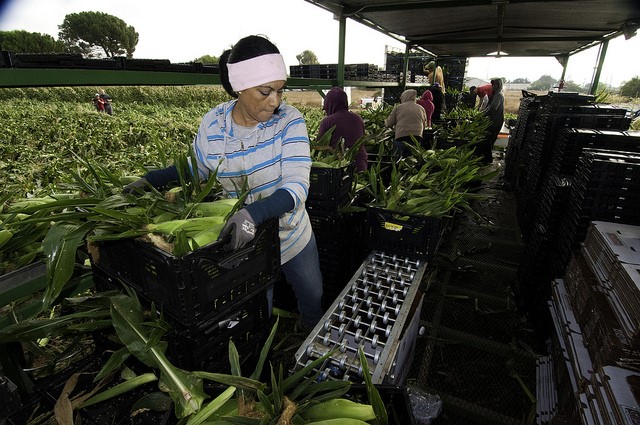The Role of Immigrant Workers in UK and US care Homes
In the quiet corridors of care homes across the UK and the US, a profound narrative unfolds—one woven with the threads of hope, resilience, and invaluable contributions. At the heart of this story are the immigrant workers, whose dedication and compassion often go unseen yet form the backbone of the caregiving industry. As the populations of both nations age, the demand for skilled, empathetic caregivers continues to rise, spotlighting the crucial role these workers play in enhancing the quality of life for those who receive care. This article delves into the multifaceted contributions of immigrant workers in care homes, exploring their experiences, the challenges thay face, and the essential impact they have on the wellbeing of residents and the broader healthcare system. Through their stories, we uncover not only the struggles of adaptation and acceptance but also the richness they bring to a sector that thrives on diversity and compassion.
The vital Contribution of Immigrant Workers in Enhancing Care Home Services
The care home sector in both the UK and the US relies heavily on the dedication and expertise of immigrant workers, who bring a wealth of experience and diverse cultural perspectives to the table. these individuals not only fill critical labor shortages but also enhance the quality of care received by residents. Their ability to communicate in multiple languages and understand various cultural nuances facilitates more personalized care,promoting better emotional and mental well-being among residents. This supportive surroundings is essential, particularly for seniors from diverse backgrounds who may feel more comfortable receiving care in their native language or through culturally relevant practices.
additionally, immigrant workers often possess unique skill sets and qualifications that enrich the workforce and support the delivery of top-notch services in care homes.By integrating various approaches to health and wellness, they help to implement innovative caregiving strategies that improve overall service quality.Some notable contributions include:
- Holistic Care Approaches: Emphasizing the importance of mental and emotional well-being alongside physical health.
- Community Engagement: Building relationships with families and local communities to create a supportive network for residents.
- Adaptability: Quickly adjusting to the needs and preferences of both residents and staff in dynamic care environments.
| Benefit | Impact |
|---|---|
| Enhanced Communication | Smoother interactions and understanding between staff and residents. |
| Cultural Sensitivity | Improved resident satisfaction through culturally appropriate services. |
| Skilled Workforce | Higher standards of care driven by specialized training and experience. |

Addressing Challenges Faced by Immigrant Care Workers in the UK and US
Immigrant care workers in the UK and US frequently enough navigate a landscape filled with multifaceted challenges that can hinder their ability to provide quality care. Despite the essential roles they play, many face systemic issues, including language barriers, cultural misunderstandings, and a lack of recognition for their qualifications. These obstacles can lead to feelings of isolation and burnout, creating a cycle that affects not only the workers but also the residents they care for. By fostering an inclusive environment where these workers can improve their language skills and receive training that acknowledges their previous experiences, care homes can definately help mitigate these challenges and enhance the overall quality of care.
Moreover,the economic vulnerability of immigrant care workers is a pressing concern that impacts their job satisfaction and mental well-being. Many are employed in low-wage positions without access to essential benefits, such as health care and job security. This precarious situation can be exacerbated by restrictive immigration policies that create uncertainty about their future in the workforce. Addressing these issues requires a concerted effort from policymakers, employers, and community organizations to advocate for fair wages, better working conditions, and legal protections. By developing initiatives to support the rights and well-being of immigrant workers, society can recognize their invaluable contributions and create a more equitable system for all care workers.

Fostering Inclusivity: Best Practices for Supporting Immigrant Staff in care Homes
Creating an inclusive environment in care homes is essential for maximizing the well-being of both staff and residents. It is indeed crucial that facilities implement strategies that recognize the unique contributions of immigrant workers.Some effective practices include:
- Cultural Competency Training: Offering regular training sessions that educate all staff about different cultures, traditions, and languages can enhance understanding and communication, leading to a more cohesive workplace.
- Mentorship Programs: Pairing immigrant staff with experienced employees can provide support and guidance, helping newcomers navigate the challenges of their roles while fostering personal and professional growth.
- Feedback Mechanisms: Establishing channels where immigrant workers can voice their concerns or suggestions allows for a more responsive work environment that values their input.
- Inclusive Policies: Regularly reviewing and updating workplace policies to ensure inclusivity and fairness is vital. This includes promoting equal possibility, addressing workplace harassment, and respecting diverse religious and cultural practices.
Moreover, care homes should strive to celebrate diversity through community-building activities. Regularly scheduled events that embrace different cultural celebrations can foster a sense of belonging among staff and residents. The implementation of such activities might involve:
| Event | Description | Purpose |
|---|---|---|
| International Potluck | Staff and residents bring dishes from their home countries. | To share culinary traditions and promote cultural exchange. |
| Language Exchange Workshops | Sessions where staff teach their native language in fun, informal settings. | To enhance communication skills while fostering friendships. |
| Celebration of Cultural Holidays | Special events dedicated to notable cultural holidays. | To acknowledge and respect diverse backgrounds within the team. |
By implementing these practices and fostering a spirit of inclusivity, care homes can better support their immigrant staff, ensuring that everyone feels valued and empowered to contribute to their fullest potential.

policy Recommendations for strengthening the Immigrant Workforce in the Care Sector
To enhance the contributions of immigrant workers in the care sector, policymakers should begin by implementing initiatives that focus on workforce integration. This can be achieved through the following measures:
- Language and Cultural Training: Providing language courses and cultural immersion programs will help immigrant workers communicate effectively and integrate smoothly within diverse teams.
- Recognition of Foreign Qualifications: Developing streamlined processes for the recognition of international qualifications ensures that skilled workers can practice and provide the best care.
- Career Pathways: Establishing clear career advancement tracks that allow for further training and development can motivate immigrant caregivers to stay in the sector,thus reducing turnover rates.
Along with integration efforts, it is vital to address the regulatory and economic challenges faced by immigrant workers in the care sector. Key recommendations include:
- Fair Wage Policies: Ensuring competitive wages that reflect the skills and challenges of care work can attract and retain talent.
- Access to Support Services: Providing resources such as counseling and mentorship can help immigrant workers navigate personal and professional challenges.
- Collaborative Partnerships: Engaging with community organizations and educational institutions to create support networks enhances the resilience and wellbeing of immigrant caregivers.
Wrapping Up
As we reflect on the vital contributions of immigrant workers in care homes across the UK and the US, it becomes increasingly clear that their role is more than just a supplemental workforce; they are the backbone of a system that supports some of our moast vulnerable populations. These dedicated individuals bring a wealth of diverse experiences, compassion, and resilience, enriching the lives of those they care for and the communities they serve.
The challenges faced by immigrant care workers, from navigating complex immigration policies to overcoming social barriers, are indicative of broader societal conversations about inclusivity and recognition. By acknowledging their efforts and advocating for their rights, we foster a more equitable environment that benefits not only workers but also the families and individuals who depend on their services.
In a world that continues to grapple with questions of identity and belonging, the story of immigrant workers is one of shared humanity. As we move forward, let us celebrate their essential role in care homes and strive to create systems that honor their contributions, ensuring that care remains compassionate and accessible for all. Through understanding and collaboration, we can build a future where every caregiver feels valued and empowered to make a difference, one life at a time.

